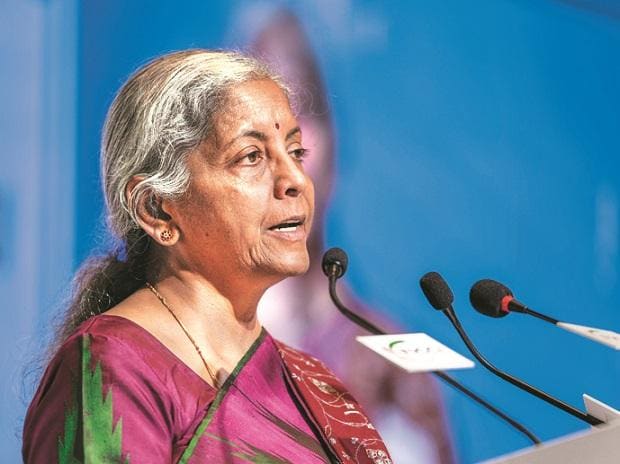[ad_1]
Defending the interest rate hikes by the Reserve Bank of India (RBI), Finance Minister Nirmala Sitharaman on Monday said that the central bank is not necessarily synchronising with central banks of the developed world, but acting to control inflation and capital outflow.
“None of us would want inflation to be completely out of control. The RBI’s business is to manage inflation and keep it under expected limits governed by an Act. It is not necessarily synchronising and at the same time also watching the global movement of capital. Once the interest rate goes up somewhere, capital runs that side. They are all interlinked,” Sitharaman said at a post-Budget interaction in Jaipur.
The comments by Sitharaman come in the backdrop of a 25-basis points repo rate hike by the RBI on February 8, taking the key benchmark interest rate to 6.5 per cent.
India’s retail inflation reversed its downward trend in January at 6.52 per cent and once again breached the central bank’s upper tolerance limit of 6 per cent after a gap of two months, forcing some analysts to project another rate hike by the RBI monetary policy committee in April.
Responding to a question on the trade-off between high interest rates and growth, Sitharaman said: “The central banks in the West are responding in a synchronised manner because they had their interest rate low for a very long time. But in emerging markets, the situation is unique to each of the countries. In that, the RBI is watching the Indian economy and taking a call as and when required.”
On states like Rajasthan implementing the old pension scheme (OPS), Sitharaman said if any state expects the accumulated fund under the new pension scheme (NPS) will come to the state government, it is impossible.
“If a state for any reason has taken the decision to move to OPS and expects the fund should at one go come to the state government, then no. It is the money of the employee which is getting accumulated. When the employee retires, it will go to him/her. This clarity should be there,” she added.
Financial Services Secretary Vivek Joshi said many states shifting to OPS is not a good trend.
“State governments are only deferring their liabilities. On state governments demanding a refund of their shares, the law is quite clear that state governments cannot get that money because the money belongs to the employee under NPS. This is an agreement between the employee and the NPS trust. If the employee exits prematurely from NPS, there are different rules. Under current rules, refunding NPS money to states is not possible,” he added.
Sitharaman said that private capital expenditure in the economy is expanding, but it would be affected by global challenges and a possible receding demand in the West.
[ad_2]
Source link



